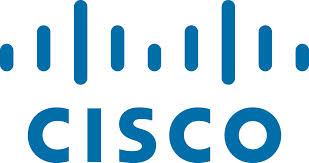The sessions here have been pretty much continuous, and we've had our share of updates on unified communications, collaboration, video and social media. No surprises there, but where it got more interesting was when they framed these things around the bigger picture themes, such as innovation, time to market, architectures to support the cloud, and "networked economies". Their mantra is best summed up by the VSE acronym - vision, strategy, execution.
There were a lot of forward-thinking ideas here, and while they may take time to become realized, Cisco is reaching way beyond making businesses more productive. The networked economy idea is far grander, where the intent is to leverage Cisco's network and cloud capabilities to help economies grow - by creating jobs, improving health care, making government more efficient, enablihg a rich classroom learning experience, etc.
Undoubtedly, the world needs these things, and Cisco believes the stars have lined up now for them to take on this mantle. Let's set aside the reality about how cash-strapped and nearly bankrupt most public institutions are these days - this is more a matter of will and vision than investing in cutting edge technology. If you don't dream big, these things will never happen, right?
When you hear John Chambers talk about Cisco's accomplishments in the past year, it's hard to argue against where they're making their big bets. He was very enthusiastic in sharing some metrics about Cisco's growth in a very difficult global economy - over 400 new products introduced, 707 patents applied for in the last quarter, over 5,000 CSR-1's sold, 3 major acquisitions (Tandberg, Starent, Flip), etc.
And then - just like that - they announced their new tablet, the Cius. That was news to most of news, and it sure looks good. Most people talk about it only as an enterprise device, but along the lines of Flip, I can see lots of consumer potential as well. Coming back to the big themes noted above, John Chambers had a much bigger message beyond the features and apps that Cius supports (and it's Android based - how's that for being open?). For him, Cius reflects their vision about architecture, and planning ahead for making many disparate tools and technologies work together on a common network framework.
For example, Cius is mobile - you can walk about with it, and using the dual cameras (on the front and the back), you can walk about to show things nearby to people at the other end who may be thousands of miles away. For video, Cius supports telepresence, so you can use it to join TP sessions remotely. It also will interface to a TV set, so you can share content with a larger group, such as a classroom. Of course, it supports all the social media tools for virtual sharing (including Quad, their enterprise social software platform), and can just as easily be used simply as a text reader. These are just a few examples to show how it brings together so much of what Cisco is doing in a single device and in a singular experience.
There was lots more on tap here, but one can only absorb so much in such a concentrated program. Aside from Cius, there would be two big takeaways for me. First is the new mantra about how "video is the new voice". That's a nice way of saying what Cisco has been focusing on lately. We've been hearing about video and collaboration a lot the past two years, and not surprisingly - sort of - there was hardly any mention of voice at C-Scape. Virtually no discussion about IP phones, VoIP, SIP, etc. It's all about collaboration, with video being the big driver. Sure, this serves Cisco well by driving more bandwidth intensive activity over the network, but the bigger picture really is about making businesses - and economies - more competitive by working with Cisco. As John Chambers said, Cisco wants to be your preferred business partner - and not just a technology supplier.
The second big idea is the cloud. Padmasree Warrior gave a strong keynote this afternoon about this, citing it as a $30 billion opportunity. I quite agree with her view that the key is becoming a "trusted cloud" for enterprises - and service providers (they talked quite a bit about that). This is one of the Geoffrey Moore-inspired "chasms" that John Chambers talked about, and when enterprises cross over, they are ready to place their trust in the cloud, and with that, all these good things are poised to happen.
Of course, we've survived this long without the cloud, but Cisco kept reminding us how complex our world is becoming, and that we need these capabilities to manage. They make a strong case for that, and if you buy in, then Cisco just may be your ticket to survival in the information economy.
My world certainly isn't this complex, but when you're talking about governments, global enterprises and the like, this line of thinking makes a lot more sense. Cisco is making big bets on big things, and it's fair to say there aren't any other companies out there who are willing and able to go down this path - or at least in this manner. Of course, measuring success on this scale will be tricky, but going in, the vision here is pretty strong. 2010 will be a hard act for Cisco to follow, so next time around for C-Scape, it sure will be interesting to hear about how it's all unfolding.
This is no ordinary keynote presentation or audience. There were only 100 analysts invited globally to attend, but they had over 12,000 partners and customers on hand -so they needed a pretty big space for this!

You'd think this was a Cirque du Soleil show. Pretty impressive opening fanfare. What else would you expect? Cisco - in Las Vegas....

John Chambers - larger than life, on screen and in person

The Cius (see-us)- just launched that very moment

This was neat. John Chambers and Marthin De Beer in a relaxed mode, presenting the winner of their I-Prize competition for innovation. They got 824 ideas from 156 countries, with a $250,000 prize. The winner - Team Rhinnovation - was based in Mexico, and are seen here via a live Telepresence session being congratulated by Cisco.












No comments:
Post a Comment